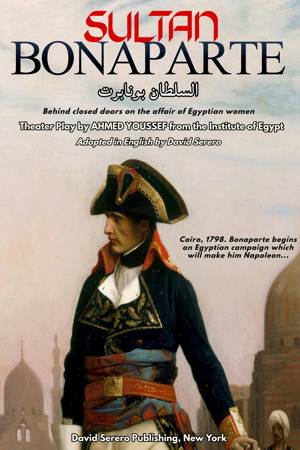
- Retrait gratuit dans votre magasin Club
- 7.000.000 titres dans notre catalogue
- Payer en toute sécurité
- Toujours un magasin près de chez vous
- Retrait gratuit dans votre magasin Club
- 7.000.000 titres dans notre catalogue
- Payer en toute sécurité
- Toujours un magasin près de chez vous
Description
Cairo, 1799. General Bonaparte begins an Egyptian campaign, which will make him Napoleon. However, on the night of January 3 to 4, 1799, barely six months after the capture of Cairo by Napoleon Bonaparte, some soldiers of the French army admitted to having murdered three Egyptian women in obscure circumstances.
Bonaparte, torn between his desire to inflict on his soldiers a punishment commensurate with the crime but, above all, confirming his policy of respect for Islam and the pressure from his generals not to execute the soldiers so as not to arouse anger within the army had to be pronounced quickly so as not to let rumors of partiality circulate among the population. Before deciding, Bonaparte summons the two most illustrious of his generals, Kléber and Menou. The closed-door meeting took place at the legendary Saladin citadel on the heights of the Egyptian capital.
Ahmed Youssef weaves a severe dialogue between these three generals with opposing temperaments, contradictory aspirations, and different conceptions of the Orient and Islam. A dialogue which, despite the sensitive issue of murdered Muslim women, is not devoid of humor, irony, and the strange art of banter between these three sons of the Enlightenment. On leaving this closed session, Bonaparte announced an unexpected decision.
Ahmed Youssef is a famous writer and author of several reference works on the question of the Egyptian campaign, including "Bonaparte and Mahomet" and "Captain Bouchard, this unknown man who discovered the Rosetta Stone." He also translated the monumental Correspondence of Bonaparte in Egypt into Arabic. He is today a member of the board of directors of the Egypt Institute.
Spécifications
Parties prenantes
- Auteur(s) :
- Editeur:
Contenu
- Langue:
- Anglais
Caractéristiques
- EAN:
- 9798227855015
- Date de parution :
- 31-05-24
- Format:
- Ebook
- Protection digitale:
- /
- Format numérique:
- ePub







